- Renesas Electronics Corporation
- Renesas
- semiconductor
- Ministry of Electronics & Information Technology
- Altium 365
- Altium Designer
- Malini Narayanamoorthi
Renesas Strengthens India Semiconductor Push with Startup and Academia Partnership, New Offices in Bengaluru and Noida
- By MT Bureau
- May 14, 2025
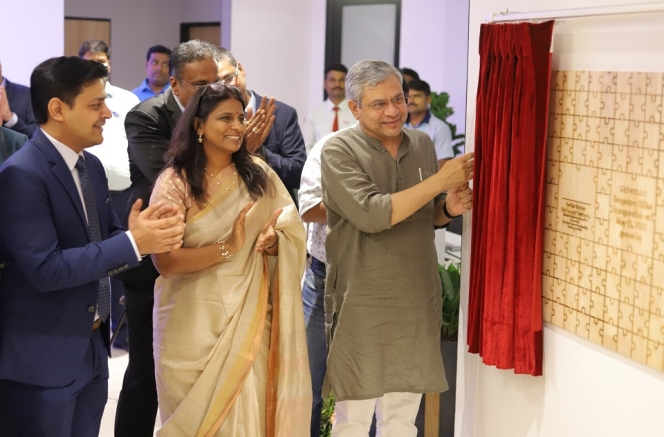
Tokyo-headquartered semiconductor major Renesas Electronics Corporation has expanded its presence in India’s chips ecosystem through new partnerships, infrastructure and strategic investment in local talent. The Japanese semiconductor giant announced two Memoranda of Understanding (MoUs) with the Ministry of Electronics & Information Technology (MeitY), Government of India, aimed at fostering innovation through startups and academic institutions.
The MoUs, signed with the Centre for Development of Advanced Computing (C-DAC) under the MeitY’s Chips to Startup (C2S) programme, focus on supporting local startups and promoting industry-academia collaboration in VLSI and embedded semiconductor systems.
The announcement coincided with the inauguration of Renesas’ newly expanded offices in Bengaluru and Noida. These facilities will serve as key innovation and R&D hubs, as the company ramps up operations across India.
Under the first MoU, Renesas will support Indian startups by providing product engineering resources, including Renesas development boards and Altium Designer – industry-leading PCB design software. The second MoU focuses on academic collaboration, offering development tools, educational training and cloud access to Altium 365 to enhance experiential learning for students and foster next-generation engineering talent.
The C2S programme involves over 250 academic institutions and around 15 startups, creating a broad base for indigenous semiconductor innovation.
Malini Narayanamoorthi, India Country Manager and VP, MID Engineering, Analog & Connectivity Group, Renesas, said, "The inauguration of our expanded offices marks a significant milestone for Renesas in India. It reflects our unwavering commitment to innovation, excellence and the nurturing of local talent. By building products in India, for India and the world, we continue to drive growth and deliver meaningful impact across the Indian market. We are proud to sign two MoUs under the MeitY C2S programme, focused on advancing research, fostering innovation, and nurturing product-focused engineers. These strategic collaborations align with the Make in India initiative, aiming to strengthen local design and manufacturing capabilities and empower homegrown talent to drive the future of industry."
Renesas also inaugurated its new offices in Bengaluru and Noida – two of India’s key semiconductor hubs. The new Bengaluru facility, now the company’s largest site in India, brings together approximately 500 employees, including engineers from recently acquired Altium and Part Analytics. The facility features state-of-the-art labs and collaborative spaces designed to harness India’s engineering talent for global innovation.
The Noida office integrates engineering and business functions, with a strong focus on high-performance computing and automotive SoC development through the company’s R-Car platform. This site is set to play a pivotal role in Renesas’ global product development strategy.
Going forward, Renesas aims to generate over 10 percent of its global revenue from India by 2030 and plans to expand its local workforce to 1,000 employees by end-2025. This follows recent strategic moves, including a collaboration with CG Power and Stars Microelectronics on an OSAT facility in Gujarat and an academic partnership with IIT Hyderabad.
Sterling Tools Partners China’s MINIEYE To Introduce ADAS Solutions In India
- By MT Bureau
- January 19, 2026
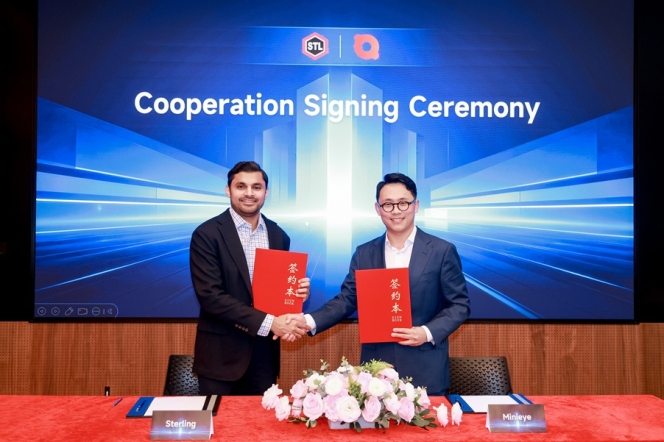
Sterling Tools has entered into a partnership with MINIEYE, a Hong Kong-listed developer of intelligent driving and in-cabin solutions. The collaboration focuses on the deployment of Advanced Driver Assistance Systems (ADAS) and Driver Monitoring Systems (DMS) tailored specifically for the Indian automotive market.
As per the agreement, Sterling Tools will lead application engineering and on-ground adaptation. This involves tuning perception algorithms to account for Indian road scenarios, traffic patterns, and environmental conditions. The project aims to ensure that safety technologies, such as Autonomous Emergency Braking (AEB) and Lane Departure Warning Systems (LDWS), function reliably in local settings rather than relying on global configurations.
The partnership is positioned to meet upcoming Indian safety mandates. Effective 1 January 2027, regulations will require the fitment of ADAS and Driver Drowsiness and Attention Warning Systems (DDAWS) in new vehicle models. The scope of the collaboration covers both commercial and passenger vehicles, including technologies for Forward Collision Warning (FCW) and Blind Spot Monitoring.
MINIEYE provides technology that complies with EU General Safety Regulations and holds Automotive SPICE V4.0 CL3 certification. Sterling Tools is supporting this transition as part of a broader expansion into electronics and safety-critical components, which includes electric vehicle power electronics and motor solutions.
Anish Agarwal, Director, Sterling Tools, said, “Road safety and regulatory compliance are becoming increasingly important across both commercial and passenger vehicle segments in India. This collaboration allows us to work with a global technology partner to address the growing need for driver assistance and monitoring systems that are engineered for Indian operating conditions. At Sterling Tools, our focus remains on supporting OEMs with engineered, safety critical technologies aligned with upcoming regulatory requirements.”
Dr Liu Guoqing, Founder and Chairman, MINIEYE, added, “Partnering with Sterling Tools marks a vital step in bringing intelligent driving to India, leveraging Sterling Tools local expertise to translate technology into production-ready applications that enhance vehicle safety.”
- Front AI Communication Ecosystem
- F.A.C.E
- Faraday Future Intelligent Electric Inc.
- Max Ma
- FX Super One MPV
Faraday Future Details F.A.C.E AI Front Grille System For FX Super One
- By MT Bureau
- January 18, 2026
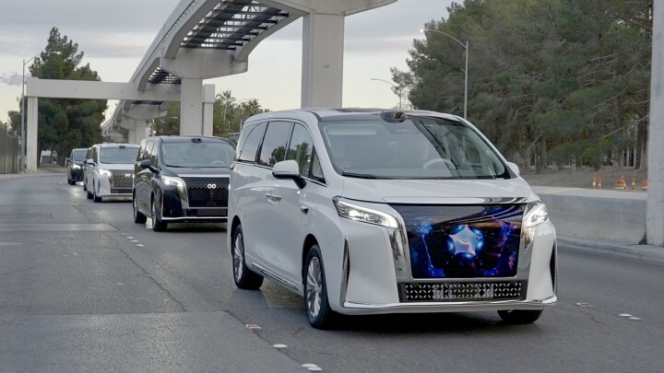
Faraday Future Intelligent Electric Inc. has released technical details regarding the Front AI Communication Ecosystem (F.A.C.E.), a system featured on the electric version of its FX Super One MPV.
The technology replaces the traditional front grille with a display and an AI avatar designed to act as a co-pilot and communication interface.
The system utilises multimodal interaction, including voice, gesture and touch, to respond to user needs. It is controlled via a smartphone application, allowing for the display of custom graphics, logos and streaming video while the vehicle is stationary. The hardware incorporates sensors that enable the AI agent to perceive its surroundings and interact with individuals outside the vehicle.

The F.A.C.E. system uses a Large Language Model (LLM) reasoning layer to interpret user intent and execute actions. Its functionality includes role-awareness personalisation, which distinguishes between owners, family members and unknown persons to provide appropriate responses.
The system supports proactive communication, such as initiating responses when someone approaches the vehicle to improve safety. Users can also interact with the vehicle’s voice assistant from the exterior to check status or request access. The FX Super One platform is engineered to support both battery electric and AI hybrid extended range (AIHER) powertrains.
The FX Super One is positioned as a mass-market MPV for the United States. Faraday Future has established a three-stage delivery structure for the model:
- Phase One: Deliveries to FX Partners are expected to begin in the second quarter of this year.
- Phase Two: B2B partner deliveries and production ramp-up are scheduled for the third quarter.
- Phase Three: Full-scale consumer market deliveries are targeted for the final quarter of this year or the first quarter of 2027.
Max Ma, Global CEO, FX, said, “Offering technology like our unique F.A.C.E system in a new category of vehicle will be a game changer in the marketplace. It will allow users to connect with the world in a totally new way. It can express itself and communicate to the world in a way never seen before in a vehicle. The FX Super One is not just a new MPV, it is the first mass-market, first-class Embodied AI MPV designed for the U.S. market, where intelligent space, AI interaction, sensing, computing and power and extended-range capability come together in a single platform.”
- Schaeffler
- ReDriveS
- German Federal Ministry for Economic Affairs and Climate Action
- Prof. Dr. Tim Hosenfeldt
Schaeffler Leads ReDriveS Project For Electric Axle Drive Recycling
- By MT Bureau
- January 17, 2026
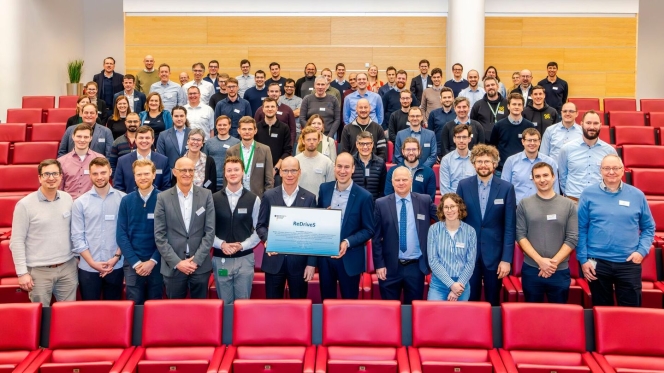
German component supplier Schaeffler is leading the ReDriveS research project, an initiative funded by the German Federal Ministry for Economic Affairs and Climate Action. The project, which includes 25 partners from industry and academia, aims to develop an automated and scalable recycling concept for electric axle drive systems.
The project has a volume of over EUR 25 million, with funding exceeding EUR 16 million over a 36-month period. The technical focus is on robot-guided disassembly to recover materials such as rare earths, copper, aluminium and steel. This approach is intended to support the repair of drives, the reuse of subcomponents, or the recycling of materials to meet statutory requirements and secure supply chains.
A central component of the project is the development of a digital twin that processes data throughout the lifecycle of an axle drive. This digital model assesses the condition and geometry of units to determine whether they should be dismantled into main components – such as the motor, inverter, or transmission – or broken down further for material recycling.
The system is designed to be manufacturer-independent, allowing the technology to be used as an industry solution for original equipment manufacturers (OEMs) and recyclers. The project also explores data-based business models for axle drives enabled by this digital ecosystem.
Prof. Dr. Tim Hosenfeldt, Head of Central Technologies at Schaeffler, said, “With ReDriveS, we are launching a key project for the circular economy in electric mobility as consortium leader, together with the German Federal Ministry for Economic Affairs and Energy and strong partners. Our goal is to make electric axle drives significantly more resource-efficient through digital twins, automated disassembly and high-quality recycling – thereby securing raw materials and supply chains, reducing CO2 emissions, and strengthening Germany as a location overall.”
BYD Extends Blade Battery Warranty To 8 Years Or 250,000km
- By MT Bureau
- January 16, 2026
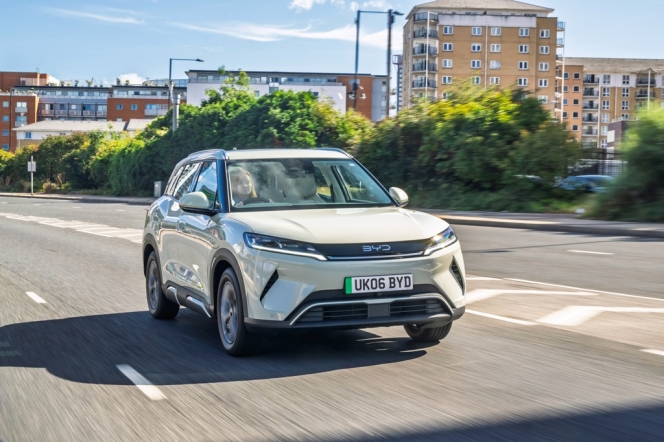
BYD has updated its warranty terms for the Blade Battery in Europe, increasing the mileage limit to 250,000km while maintaining the 8-year duration. The extension applies to both battery electric vehicles (BEVs) and Super Hybrids and includes a guaranteed State of Health (SOH) of at least 70 percent. This change is retroactive, covering existing owners alongside new customers.
The Blade Battery utilises lithium iron phosphate (LFP) chemistry, which avoids the use of nickel and cobalt. Its design allows cells to act as structural elements, increasing the vehicle's torsional rigidity. This configuration reduces the volume occupied by the battery by 50 percent compared to traditional designs, intended to optimise interior space.
The battery has undergone testing, including nail penetration, where surface temperatures remained below 60deg Celsius. It has also been subjected to overcharge tests, oven tests at 300deg Celsius, and crush evaluations. According to BYD, the battery can exceed 3,000 charge and discharge cycles, indicating a service life of approximately 1.2 million kilometres.
Current models utilising this technology include the BYD SEAL, which reports a range of 570km on the combined cycle and the BYD SEALION 7, capable of DC charging from 30 percent to 80 percent in 18 minutes at a power of 230 kW.
Under the new terms, the specific battery cover sits alongside the standard vehicle warranty of six years or 150,000km. The electric drive unit remains covered for eight years or 150,000km, while the anti-perforation warranty continues at 12 years with unlimited mileage. The extension is designed to address user confidence regarding the longevity of energy storage systems in the European market.



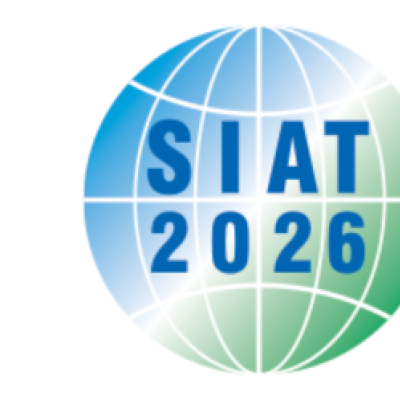



Comments (0)
ADD COMMENT